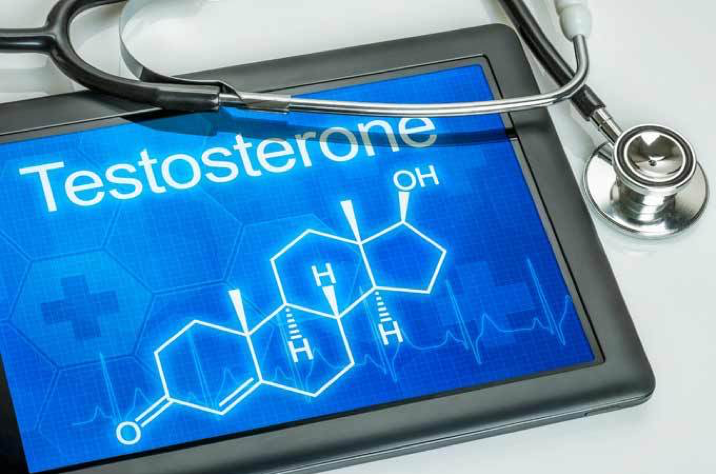Testosterone is a pleiotropic hormone. This means that it has multiple functions and acts at different levels. Not only does it act in a neuroactive way, modifying human behaviors such as aggression and sexual activity, but it also stimulates neuroplasticity, increasing neuronal survival, which gives it the capacity to improve symptoms of depression.
In a systematic review of 27 publications in which approximately 1,900 men were included, it was found that treatment with testosterone doubled the possibility of improving depressive symptoms versus placebo. In fact, the higher the testosterone dose, the greater the antidepressant effect produced.
Dr. Moisés De Vicente – Neolife Medical Team
Supplementation with bioidentical hormones is the present.
Aging stalks us. From approximately the age of 40 onwards our cells begin a downward metabolic slide after having achieved their fullness. It seems that nothing works the same. We have less vitality and the illnesses that are a typical result of this situation begin to lurk; giving the first twinges that are nothing but the preamble for what will happen over the next two decades.
In order to alleviate this situation and try to reverse or at least postpone the appearance of these diseases, we at Neolife firmly believe in ensuring that our biomarkers are in a state of excellence. This includes biomarkers related to cardiovascular risk, bone metabolism biomarkers and hormonal biomarkers.
Supplementation with bioidentical hormones is the present. It allows us to return to an already lost hormonal situation and escape the decline in which we are immersed. To once again feel and experience things that we had forgotten.
From our point of view, this supplementation is needed to complete the disease prevention program. We’ll decrease the cardiovascular risk, we’ll avoid the appearance of osteoporosis, we’ll improve our vitality and our muscle mass, and a long list of other benefits.
Testosterone is a pleiotropic hormone. This means that it has multiple functions and acts at different levels. It not only acts neuroactively, modifying certain areas of human behavior such as aggressiveness and sexual activity. It also stimulates neuroplasticity, increasing neuronal survival, which gives it the ability to improve symptoms of depression.

Just how testosterone acts at this level is something that is very topical. In a study to be published soon (1) they identify the neurotransmitter GABA as the key to producing this effect. This molecule intervenes in the pathophysiology of a host of psychiatric disorders. There seems to be a relationship between GABA levels and testosterone levels in patients with symptoms of depression.
It’s true that, until now, in the various studies conducted to confirm whether administering testosterone can improve these symptoms, the results were not conclusive enough. This was mainly due to the huge number of associated confounding factors. Therefore, an article has recently been published in the journal JAMA Psychiatry (2) that allows us to shed more light on this topic and add another benefit of using testosterone.
This was a systematic review of 27 publications, which included approximately 1,900 men. It was found that treatment with testosterone doubled the possibility of improving symptoms of depression versus placebo. In fact, the higher the testosterone dose, the greater the antidepressant effect produced.
For the analysis, the mood and the possible presence of depressive symptoms in patients was assessed using validated tests, such as the Beck Depression Inventory (BDI) Score, before and after administering testosterone or a placebo. In effect, the patients testosterone was administered to improved their symptoms of depression significantly and independently of the other factors (age, sex, etc.). In fact, this led to an improvement in the BDI score of up to 2.2 points, similar to the effectiveness of some therapies for depression. It’s true that this was not a randomized clinical trial, but within the literature published in this regard it’s probably one of the studies with the greatest amount of scientific evidence.

Does this mean that testosterone is, or will be, a treatment for depression? The answer is no, at least not on its own. Major depression has a series of characteristics, both genetic and pathophysiological, that go beyond a hormone replacement treatment. A proper assessment by a specialist is needed, together with a suitable antidepressant treatment, in accordance with current clinical practice guidelines.
Of course, there may be a niche of patients whose lack of testosterone produces symptoms of a lack of vitality and dysthymia (tendency to a depressed mood) that could be classified as mild depression, without becoming so. A study has just been published which confirms that, when treated with hormone therapy based on testosterone, these patients achieve a significant improvement in symptoms and are able to return to full life (3).
At Neolife, as part of our global approach to anti-aging, we believe that treatment with testosterone, in selected cases and taking into account multiple variables, provides extraordinary benefits, including improvement of the patient’s mood and emotional condition.
BIBLIOGRAPHY
(1) Flores Ramos; S. Alcauter; M. López-Titla et al. Testosterone is related to GABA+ levels in the posterior-cingulate in unmedicated depressed women during reproductive life. Journal of Affective Disorders. Volume 242, 1 January 2019, Pages 143-14.
(2) Andreas Walther; Jonas Breidenstein; Robert Miller. Association of Testosterone Treatment With Alleviation of Depressive Symptoms in Men. A Systematic Review and Meta-analysis. JAMA Psychiatry. Published online November 14, 2018. doi:10.1001/jamapsychiatry.2018.2734.
(3) Vartolomei MD, Kimura, Vartolomei, Shariat. Systematic Review of the Impact of Testosterone Replacement Therapy on Depression in Patients with Late-onset Testosterone Deficiency. Eur Urol Focus. 2018 Jul 14. pii: S2405-4569(18)30172-X. doi: 10.1016/j.euf.2018.07.006. [Epub ahead of print].
